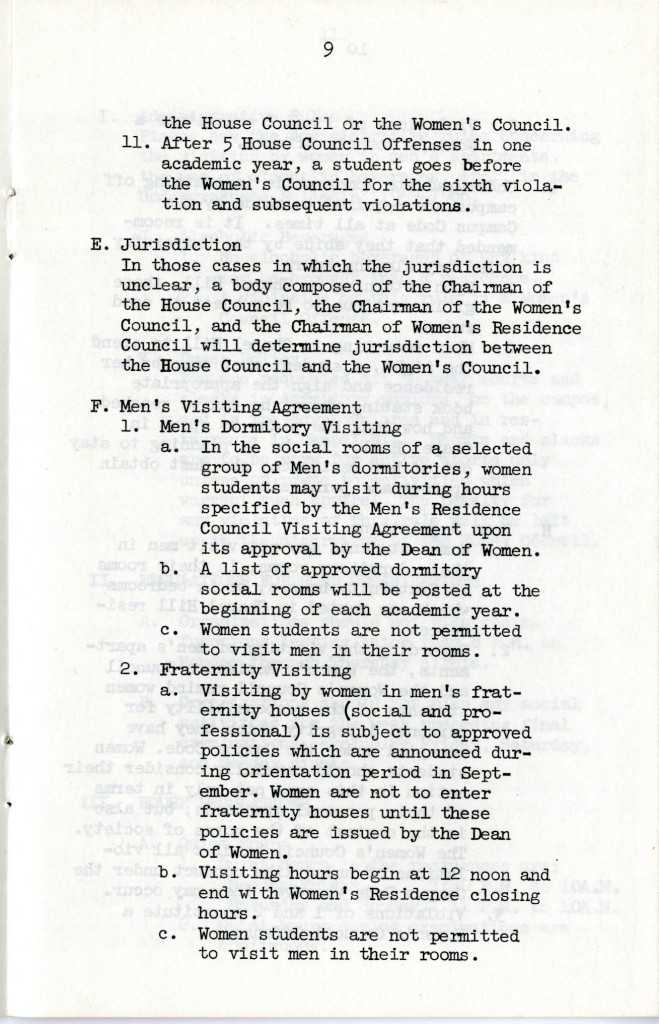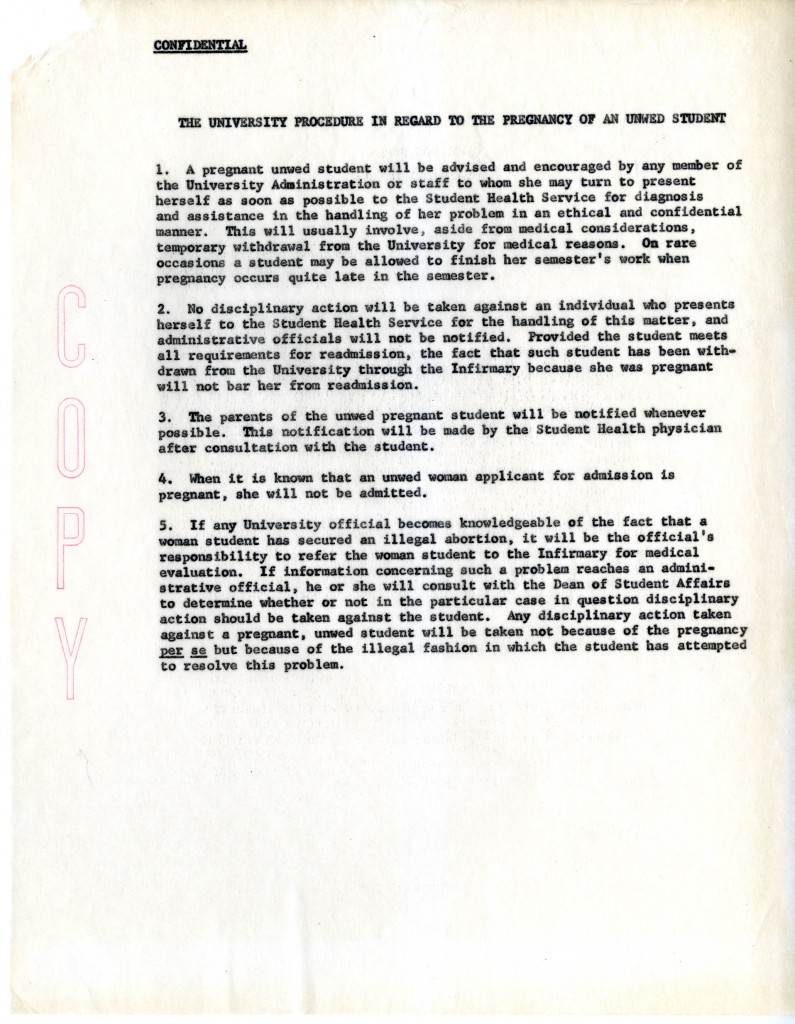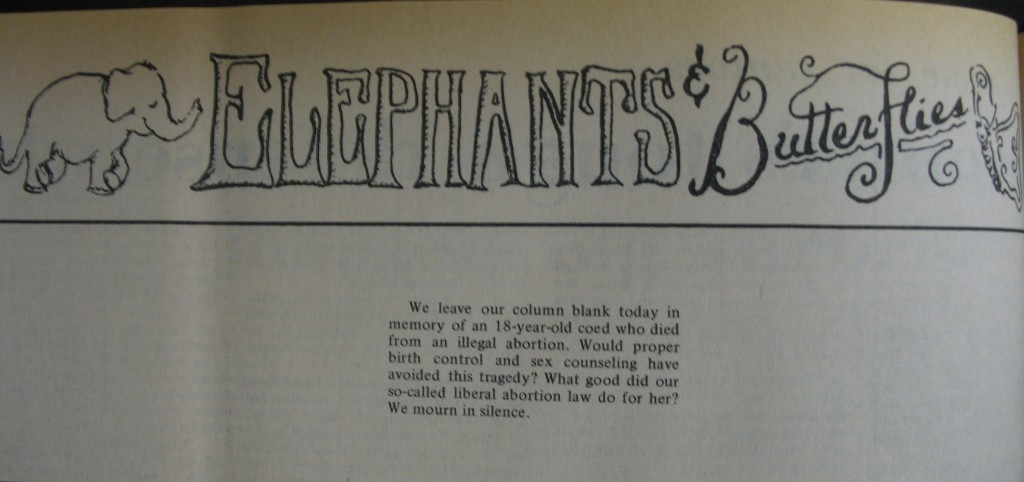If you have been paying attention to the events in the state capitol this summer, then you know that sexuality and women’s reproductive health have been a few of many hot button issues here in North Carolina. In fact, the 11th Moral Monday of July 15th was dedicated to women’s issues. So as we witness the back and forth between the legislature and protesters, we at University Archives have asked this question: how has the campus dialogue about women’s rights, gender, and sexuality changed over time? Well, one way to answer that question is by looking at our students’ history.
How were women in the university treated? A generation or so ago, female students faced a variety of rules and regulations based on their gender. In the 1960s many of the rules shied away from the use of language explicitly about abortion and contraception. Instead, women were given curfews and visitation rules. Many of these were established in the attitude of “in loco parentis” where the university acted as the female students’ parent.

Visiting with men was especially regulated. There were social rooms where women were allowed to visit with men, but under no circumstances were female students allowed to go into a male student’s room. Neglect to follow the rules would lead to review by a house committee under threat of expulsion or suspension.
In an interview years later, Sharon Rose Powell remembered the scandal of 1965. That summer the current student body president (Paul Dickson) had a girlfriend who was enrolled in summer school. Powell said: “…they were at his fraternity and just fell asleep, and she never got back to the dorm. She had to go before judiciary, before the Honor Council, and she was suspended from school. Of course, as I said before, nothing ever happened to guys because there were no rules for them.” (For more on this interview from the Southern Oral History Project click here.)

In 1967, the university moved to formulate a policy regarding illegitimate pregnancies. Unwed pregnant students were expected to report immediately to student health services. The clinic would advise the student on their medical options and recommend temporary withdrawal until such time as the student was deemed medically fit to return. Unwed females who applied to the university and were discovered to be pregnant would not be admitted.
The record regarding abortion and contraceptives is sparse, but one resource that stands out among the rest is the Elephants and Butterflies column that ran in the Daily Tar Heel in the 1960s and 1970s. The column was one of several sex education outlets at the university that attempted to address sexuality, sexually transmitted diseases, pregnancy, abortion, and contraceptives. By the 1970s it seemed that the students and some of the administration had embraced a frank discussion of women’s sexuality and students’ sexual health in general.
As time has gone on, dialogue about sexuality in the university and in many other areas has grown more open. The approval of gender-neutral housing in 2012 is one dialogue we have seen come to a resolution. My ability to live in a co-ed dormitory (Avery Hall) during my freshman year in 2008 was a testament to changing attitudes. How do you think the dialogue regarding women’s rights and students’ sexual health has changed?


Great post Morgan! I lived in women’s dorms the three years I lived on campus– two years in Cobb Dorm and one year in Manly. Men were not allowed to stay in our rooms overnight. This was in 2001-2004. Rules may or may not have been broken my roommates and myself!
They say rules are made to be broken! However when the consequences may include suspension, breaking the rules takes on a whole new significance!